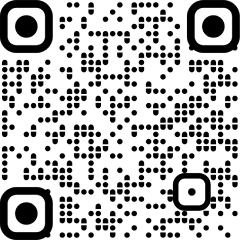India is set for a first-of-a-kind lawsuit against OpenAI, a large language model platform. The issues relate to wider issue regarding the jurisprudence on the issues which arise for consideration before the Delhi High Court.
The Asian News International has approached the Delhi High Court on the novel legal issues arising on account of recent technological advancements.
The Delhi High Court will be deciding whether the storage by the defendants of the plaintiff’s data (which is in the nature of news and is claimed to be protected under the Copyright Act, 1957) for training its software i.e., ChatGPT, would amount to infringement of plaintiff’s copyright. “The ANI’s lawsuit will address the rights of publishers and copyright owners, as well as the obligations of generative AI,” said Vennela Reddy, Manager at Tatva Legal, Hyderabad.
She added, “The outcome will have significant legal implications, such as the formulation and enforcement of AI regulations, as well as commercial consequences.”
In India, the law specifically does not mention “transformative use,” as an exception under the Copyright Act, 1957. A use can be called as a transformation wherein a work is built on a copyrighted work in a different manner or for a different purpose from the original. “The court’s interpretation of “transformative use” versus “reproduction” will shape how copyright law is applied to AI outputs,” said Abhishek Taneja, Advocate, Delhi High Court.
Uniform global framework
In September, The United Nations released a report titled, “Governing AI for Humanity: Final Report Copyright,” which flagged “issues of content, copyright and protection of indigenous knowledge and cultural expression being considered by WIPO.”
There is a lack of jurisprudence on this subject because of the technological advancement, with several lawsuit filed yet none decided.
Shimpy Arman Sharma, Partner, Anand Sharma & Associates has highlighted the need for a comprehensive global framework and a functional mechanism with inbuilt safeguards, checks, and balances to tackle misuse of new technologies. “It is important to evaluate the existing laws and the adverse fallouts to ensure that the legal path helps to create a much-needed balanced approach,” she added.
Comparison
In the early week of this month, OpenAI in the case of Raw Story Media v. OpenAI Inc, U.S. District Court for the Southern District of New York, New York federal judge dismissed a lawsuit against OpenAI that claimed it misused articles from news outlets to train its large language models.
Ronil Goger, Managing Partner, Blaze Legal explores the international jurisprudence, and states that “The United Kingdom’s “Sweat of the Brow” doctrine does not require absolute novelty, and similar principles in the USA and Canada emphasize effort and uniqueness in idea presentation.”
He added, “These doctrines support the recognition of the collaborative relationship between human creativity and AI in producing artistic works, highlighting the necessity of human involvement alongside AI capabilities.”
Open AI submitted that there have been cases filed in the United States of America as well as other jurisdictions raising similar issues. However, there is no authoritative ruling as of date.
Impact
The Delhi High Court has appointed Adarsh Ramanujan, Advocate, and Dr Arul George Scaria, Professor of Law, National Law School of India University (NLSIU) as Amici Curiae in the ANI lawsuit against OpenAI. This lawsuit will be a significant milestone in the development of the jurisprudence. “This case would establish foundational precedents for determining the legal accountability of AI developers for the content generated by their platforms,” said Abhishek Taneja, Advocate, Delhi High Court.
The lawsuit will address the ethical and legal responsibilities of AI developers. There is a challenge to ascertain the gap, and then fill the ethical as well as legal gap. This lawsuit is likely to open the gates for future litigation considering the size-and-scale on which the large language model was trained on the data sets. “The lawsuit filed by Asian News International (ANI) against OpenAI opens up the doors for more litigation by companies and individuals who are being impacted by copyright violation by AI companies,” said Alay Razvi, Managing Partner, Accord Juris.
He added, “This lawsuit will address the ethical and legal responsibilities of AI developers in regard to proprietary contents .”
The lawsuit will decide questions of significant options on the alleged usage of copyrighted data in order to generate responses for its users, amounting to infringement of the copyright. Open AI has submitted that the ANI’s domain has been blocklisted in October 2024. As a result, the said domain will be excluded from the future training of the defendants’ software.
The court will also ascertain whether the defendant’s use of the plaintiff’s copyrighted data qualifies as ‘fair use’ in terms of Section 52 of the Copyright Act, 1957.
Soumil Gonsalves, Senior Associate, Kred Jure noted, “As the first case against ChatGPT in India, this lawsuit could pave the way for more claims by publishers and individuals alleging copyright infringement. A ruling in ANI’s favor may set a legal precedent, potentially inspiring others to pursue similar actions.”
Lastly, the question of maintainability of the lawsuit as the servers of the defendants are located in the United States of America. “The lawsuit filed by ANI against OpenAI will set an important precedent in the jurisprudence surrounding the use of AI and its interplay with copyright laws and could potentially contribute to the development of a legal framework for how Indian courts interpret IP rights in the context of generative AI technologies especially AI training,” said Akshat Pande, Managing Partner, Alpha Partners.






